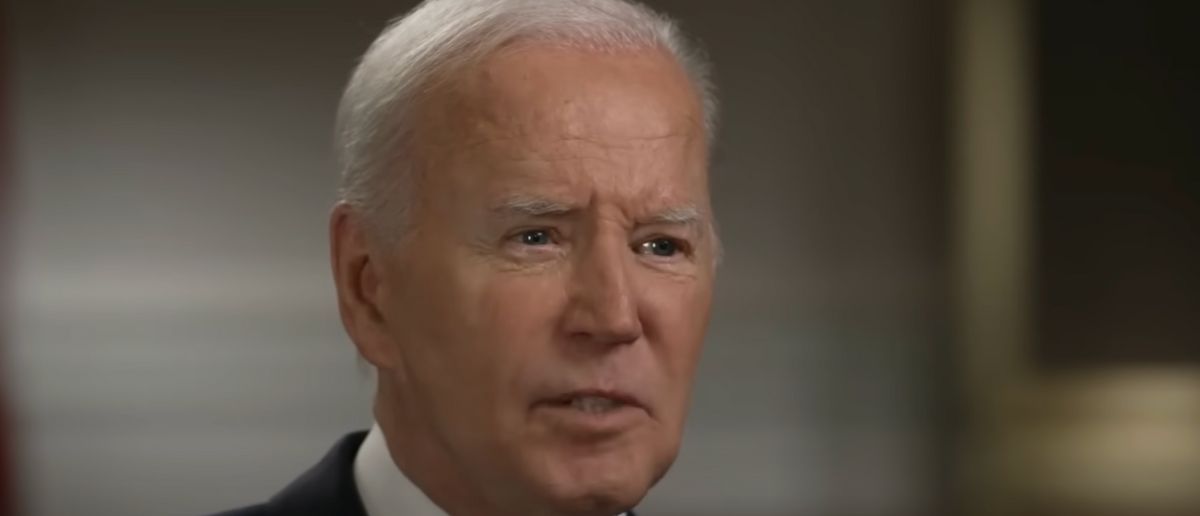
The cowardice of Joe Biden is not new. But now he’s calling it quits.
As President Biden has officially thrown in the towel with a surprising statement.
Overshadowed by the news of former President Donald Trump’s “guilty” verdict was the news that there is supposedly a ton of work done for a ceasefire between Israel and Hamas that the United States has been eyeing closely over the past several months.
The only problem is that the Biden administration may be supporting a short-sighted ceasefire that will only end up backfiring on America and her ally in Israel when Hamas recoup’s their military strength.
Biden’s Gaza Ceasefire Proposal: Potential Risks and Reactions
President Joe Biden’s latest proposal for a permanent ceasefire in Gaza has sparked significant debate among defense experts and former U.S. officials. According to these analysts, the plan might inadvertently provide Hamas with the opportunity to regroup and potentially stage future attacks similar to the deadly assault on Israel that occurred on October 7.
In recent months, Israel, the United States, and international negotiators have been working towards a temporary ceasefire with Hamas. This agreement aims to secure the release of hostages held by the terrorist group and deliver aid to Gaza. However, Biden recently presented what he described as a new Israeli proposal for a permanent ceasefire, intended to fully end the ongoing Israel-Hamas conflict.
This is a decisive moment.
Now is the time to raise your voices and demand that Hamas comes to the table, agrees to this deal, and ends this war that they began. pic.twitter.com/ugWZYmaWuJ
— President Biden (@POTUS) May 31, 2024
“Israel has offered a comprehensive new proposal,” Biden announced. “It’s a roadmap to an enduring ceasefire and the release of all hostages.”
Despite this optimistic presentation, experts express concerns that a permanent ceasefire at this stage could allow Hamas, which has not been completely defeated, to reorganize and rearm. David Daoud, a senior fellow at the Foundation for Defense of Democracies, emphasized the risks: “If this war ends now and Israeli forces withdraw… the nucleus of Hamas’ presence remains, and that is going to allow the group to rearm.” He highlighted the support Hamas receives from regional allies like Iran and Hezbollah, suggesting that the group could prepare for another large-scale attack within a decade.
Victoria Coates, a former White House national security advisor, echoed these concerns, warning that the ceasefire might “perpetuate the cycle of violence as Hamas regroups and attacks again.”
Israel has now offered a roadmap to an enduring ceasefire – and the release of all the hostages.
Yesterday, this proposal was transmitted by Qatar to Hamas.
Today, I want to lay out its terms for the world. pic.twitter.com/0cdypBP9wb
— President Biden (@POTUS) May 31, 2024
Casualty Estimates and Strategic Considerations
Estimating the impact of the conflict, Israeli Prime Minister Benjamin Netanyahu reported that the Israeli Defense Forces (IDF) have killed over 14,000 Hamas fighters since the war began on October 7. Initially, Hamas had around 30,000 fighters distributed across Gaza. Despite these losses, many Hamas fighters remain in the southern region of Rafah, where significant clashes continue.
The Biden administration, alongside the international community, has urged Israel to avoid a full ground assault in Rafah due to the potential civilian impact. Biden believes that Hamas has been sufficiently weakened, reducing the need for large-scale military operations. “At this point, Hamas no longer is capable of carrying out another Oct. 7,” Biden stated, although he acknowledged that some Israeli officials disagree.
Gabriel Noronha, executive director of Polaris National Security, criticized Biden’s approach, comparing it to the U.S. withdrawal from Afghanistan. Noronha argued that Biden’s plan is driven by political timelines rather than the actual conditions on the ground, risking a repeat of the situation where terrorist groups regained strength after U.S. withdrawal.
Moreover, there appears to be some confusion over the exact nature of the proposal Biden presented. Netanyahu’s office clarified that Israel’s actual proposal requires the “destruction” of Hamas before any permanent ceasefire. Michael Bars, a former White House communications advisor, suggested that Biden’s administration might be misinterpreting the Israeli plan to favor a permanent ceasefire, possibly influenced by domestic political pressures.
Biden’s handling of the Israel-Hamas conflict has affected his domestic political standing, particularly among Muslim communities and groups critical of his approach. In key battleground states like Michigan, with substantial Arab populations, Biden’s approval ratings on this issue are notably low. A Yahoo/YouGov poll from May indicated that only 26% of voters approved of his performance in the conflict, while 60% disapproved.
David Daoud underscored the improbability of a lasting peace agreement with Hamas: “Hamas is ideologically committed to Israel’s destruction. There is no possibility that, as long as Hamas exists, a permanent ceasefire between Israel and Gaza will ever exist.”
While Biden’s ceasefire proposal aims to end the ongoing violence, experts warn that it may not eliminate the long-term threat posed by Hamas. The debate highlights the complex dynamics and potential consequences of seeking a diplomatic resolution in the midst of an enduring and deeply entrenched conflict.
Stay tuned to the DC Daily Journal.





